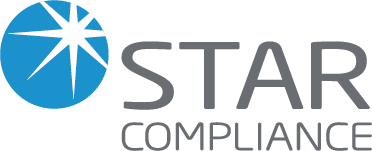Gift-giving and entertaining — perhaps more commonly known as “wining and dining” — have been intrinsically linked with business since the dawn of commerce. Today is no exception, but the practice creates a potential for misuse or abuse, such as bribery or undue influence that borders on inappropriate. Limits are now enforced, but those who overstep those limits risk incurring heavy fines, regulatory sanctions, and damage to their own or their organization’s reputation.
While the rules about this kind of business practice may be set in stone, the approach to maintaining compliance varies across organizations and industries. In this piece, we examine how corporate gift-giving is regulated and what firms need to do to comply in 2023.
Quick overview: What is FINRA?
FINRA Rule 3220: Influencing or Rewarding Employees of Others
What does FINRA consider a “gift”?
Why does FINRA Rule 3220 matter?
FINRA Non-Cash Compensation Rules
How to comply with FINRA Gifting Rules in 2023
Best FINRA compliance software solutions for 2023
Quick overview: What is FINRA?
The Financial Industry Regulatory Authority, or FINRA, is the governing body that oversees interactions between brokers to ensure fairness. FINRA is authorized by Congress to monitor the financial industry, analyzing billions of market events per day for potential regulatory violations that may cause financial harm to investors or the consumer. The organization maintains a manual of rules that regulate these events, including rules that impose limits on corporate gift-giving, ensuring it does not stray into bribery or conflicts of interest.
FINRA regulators use artificial intelligence and machine learning to keep track of over 600,000 brokers across the country, relying on this technology to pick up on anomalies or red flags that may signal malfeasance. This oversight ultimately protects investors, policymakers, regulators, and other stakeholders against getting caught in the crosshairs of broker error or subterfuge.
FINRA Rule 3220: Influencing or Rewarding Employees of Others
Among FINRA’s many rules governing broker-dealer relations is Rule 3220 (Influencing or Rewarding Employees of Others), or the Gifts Rule. Rule 3220 addresses any “gifts, gratuities and non-cash compensation” given or received in the course of doing business.
In simple terms, the FINRA Gift Rule essentially prohibits a firm or individual from giving anything with a value of more than $100 to an employee or member of another firm with which the primary firm does business. This prohibition only pertains to gifts given or received in relation to business; for example, Broadway tickets gifted to a potential client to sway their decision, or gift cards awarded to a handful of employees at another firm as a performance incentive.
The Gift Rule does not pertain to personal non-monetary exchanges; for example, if two individuals from associated firms maintain a personal relationship outside of business interactions, they would not be prohibited from exchanging gifts, as long as the gifts were not compensation or incentives for work-related services rendered.
Currently, the FINRA gift limit in 2023 is $100 per person per year. This means that:
- Firms and individuals may not give gifts worth more than a cumulative $100 in a single year to any employee or party they do business with.
- Firms must keep explicit records of all gifts, gratuities, and non-monetary compensation given to internal or external recipients.
The $100 limitation is calculated using the standard aggregate of all non-monetary compensation given to any individual member of a firm during one year.
The purpose of Rule 3220 is to avoid complications, misunderstandings, or poor business practices that may result from corporate entities exchanging non-monetary goods or services. Enforcing this rule in the financial market encourages all brokers and employees to maintain honesty and integrity while keeping the consumer’s best interests top-of-mind.
What does FINRA consider a “gift”?
The definition of a “gift” can become complicated in this context, since activities like client dinners and catered lunches are a standard part of doing business. FINRA clarifies that Rule 3220 does not prohibit “ordinary and usual business entertainment” such as meals, sporting events, live entertainment, or other activities undertaken in the context of forging business relationships. This is provided that the activity is “neither so frequent nor so extensive as to raise any question of propriety.”
The clarification comes from a 1999 letter issued by FINRA staff to account for typical non-cash compensation related to the “offer and sale of investment company shares and variable annuities.”
Similarly, it can sometimes be difficult to determine whether a gift is, in fact, related to business dealings. The nature of a FINRA-violating gift is dependent upon:
- Whether there was a pre-existing relationship between the provider and the recipient
- Whether the provider paid for the gift with their own money, without reimbursement from their employer
The gift limitation does not apply to life events (marriage, the birth of a child) or promotional items of nominal value (company “swag”), provided that the value per individual falls below $100. As mentioned above, Rule 3220 does not pertain to gifts exchanged between employees on a personal basis, unrelated to work.
Why does FINRA Rule 3220 matter?
While corporate outings and catered meetings are standard business practices, excessive gift-giving between business entities may be perceived as bribery or a conflict of interest. These kinds of interactions can result in a black mark on a firm’s reputational record, distrust from clients and customers, heavy fines, and other penalties.
To stay compliant with FINRA Rule 3220, firms must establish processes for monitoring and identifying exchanges that could present a risk. This is why FINRA requires firms to keep meticulous records of all non-monetary transactions between businesses and their employees; if the need for auditing ever arose, firms need to be prepared to provide clear, verifiable evidence that no violations occurred.
It’s also important that employees become familiar with the rules surrounding corporate gift-giving. An overview of applicable FINRA rules should be included in standard employee training across departments, with regular reviews managed by the compliance team.
FINRA Non-Cash Compensation Rules
In addition to Rule 3220, FINRA has established several other rules that pertain to non-cash compensation. They are as follows:
- 2310 (Direct Participation Programs)
- 2320 (Variable Contracts of an Insurance Company)
- 2341 (Investment Company Securities)
- 5110 (Corporate Financing Rule — Underwriting Terms and Arrangements)
These rules collectively prohibit firms or associated individuals from accepting or awarding non-monetary compensation (directly or indirectly) that may fall out of the gift category. There are exceptions:
- Non-cash compensation that does not exceed the annual per person value limit of $100 and is not intended to influence decision making.
- Occasional activities, events, or other purchases made in the standard course of doing business.
- Payment or reimbursements made for training or continuing education (subject to meeting location restrictions) unrelated to achieving a sales target.
- Internal non-cash compensation arrangements that are based on performance, such as a weekend trip or concert tickets for a top salesperson.
How to comply with FINRA Gifting Rules in 2023
As long as executives, brokers, and other firm employees understand the limitations on gifts and non-monetary compensation, complying with FINRA rules should be fairly straightforward. Here are some specific precautions your firm should take to comply in 2023:
Train employees well: Provide regular training on FINRA gifting rules, company policies that reflect these rules, and the software that helps compliance teams track anomalies. Embedding this information into your training program signals to auditors and regulators that your firm is making every effort to preserve honesty and integrity.
Keep meticulous records: Since FINRA Rule 3220 requires members to keep “a separate record of all payments or gratuities in any amount,” it’s critical that firms establish and maintain a clear-cut reporting procedure for all employees. This process should help compliance teams keep all transactions organized and searchable in the event of an audit, help leadership and regulators understand the efforts your firm is making to avoid noncompliance, and flag any exchanges that could be perceived as conflicts of interest.
Set clear definitions: While FINRA’s gifting rules limit non-monetary compensation to $100 per person per year, they do not establish what a “year” is. Is it a calendar year, a fiscal year, or some other 365-day range, based on the date of first receipt? Firms must clearly define the time frame for employees, as well as exactly what qualifies as a gift under FINRA’s definition.
Remind employees and associates of WFH guidance: FINRA has not yet amended Rule 3220 to account for expenses associated with remote work, but has provided guidance around meals for virtual meetings. Essentially, FINRA maintains that meals provided by the hosts of virtual meetings are not subject to the $100 limit, as long as the practice does not become so frequent as to raise suspicions of impropriety.
Implement “smart” compliance software: As closely as brokers can adhere to FINRA rules, humans are fallible. The best way to ensure success is through automated employee compliance software designed to alert compliance officers to anomalies so appropriate action can be taken. Embedding this kind of software into your systems proves to regulators that your firm is making every effort to maintain integrity and transparency, and that you have your employees’ (and consumers’) best interests at heart.
Best FINRA compliance software solutions for 2023
Advanced compliance software solutions can help your firm stay above board and in line with FINRA regulations. The Gifts and Entertainment solution from StarCompliance makes it easy for compliance teams to define limitations, simplify pre-clearance and reporting, and track transactions using automatic surveillance and a highly configurable rules engine.
The STAR Platform affords your compliance team a 360-degree view of all employee spending and transactions, easy-to-read data, customizable reports, and comprehensive case management — all so your firm can comply with confidence. To see what this and other innovative compliance products might look like in your organization, please reach out to a Star professional today.
Want to build a compliance program that will keep you up to date, up to speed, and in the know?
Download our free resource, The Compliance Officer's Ultimate Guide To Employee Compliance, to learn how.



